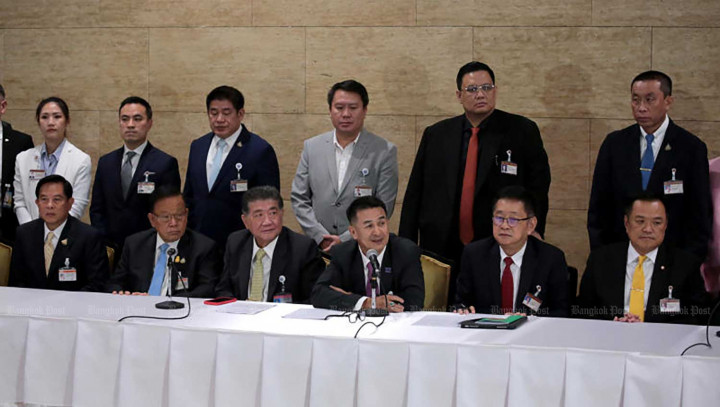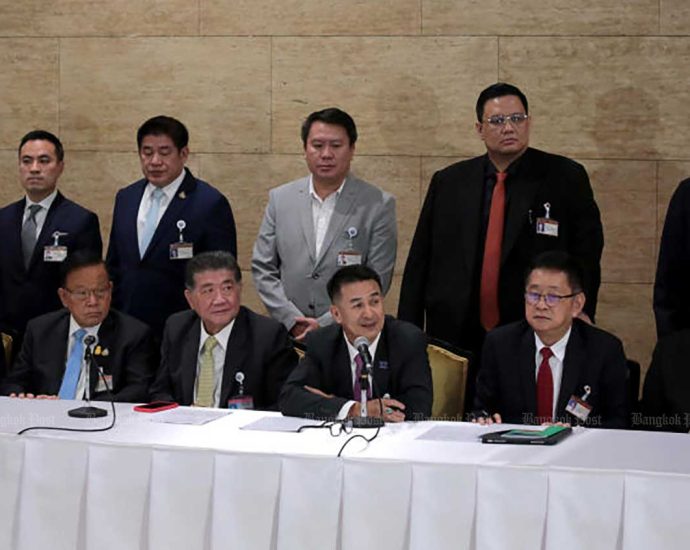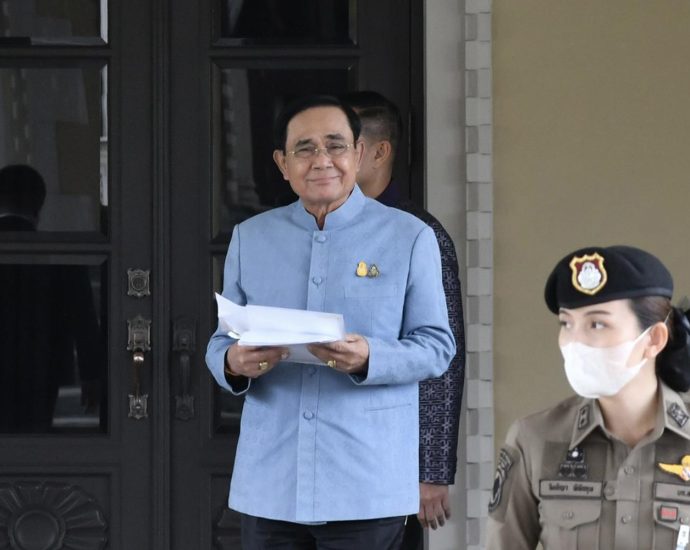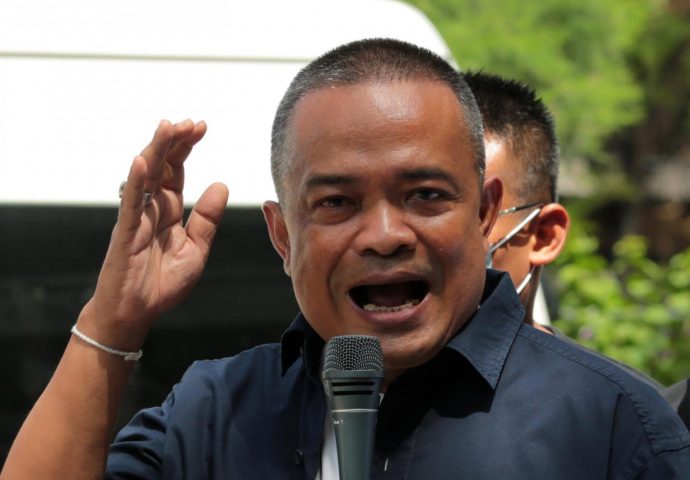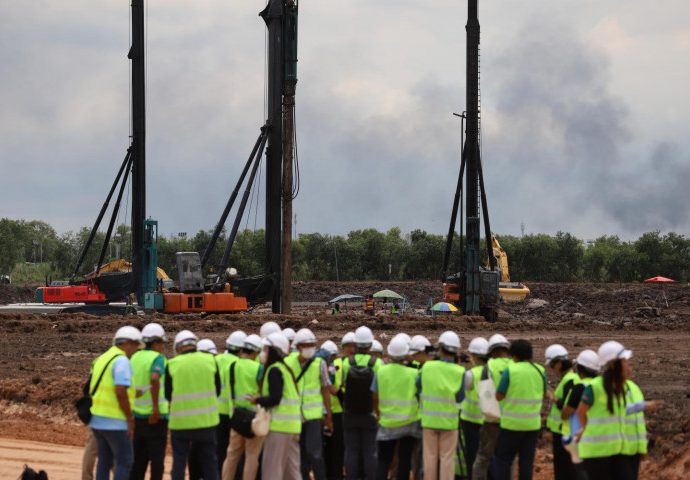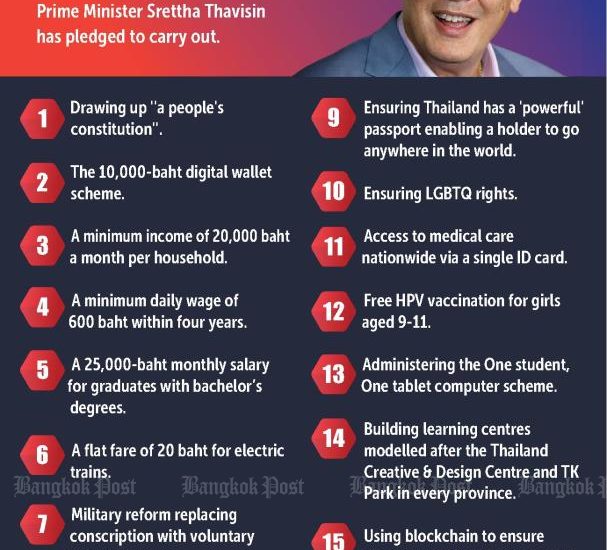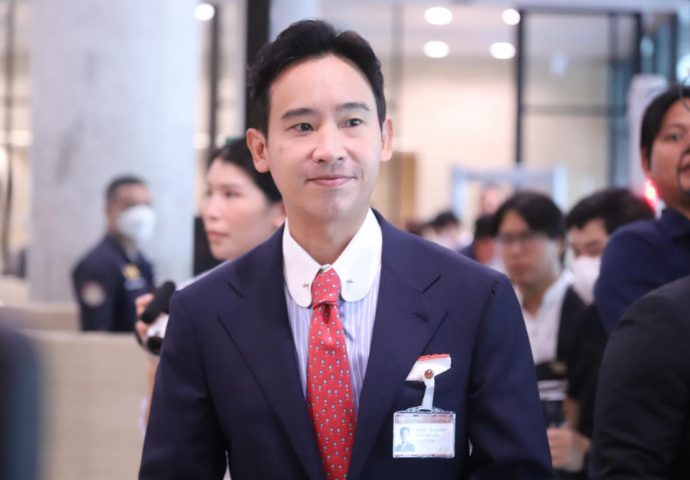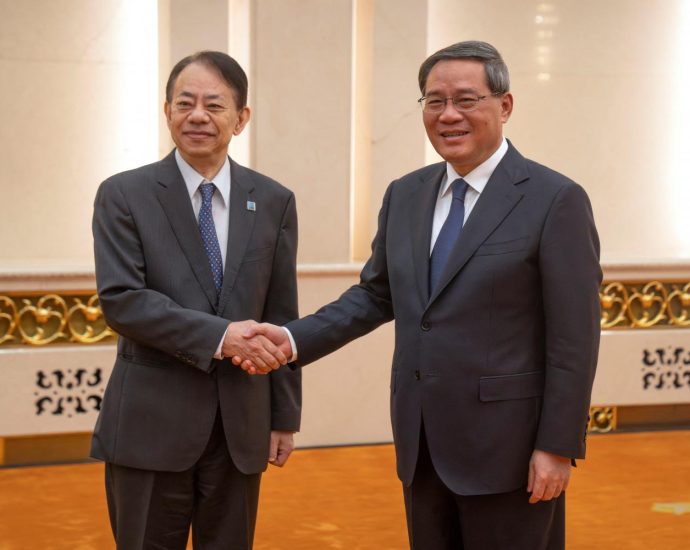Pheu Thai-led government won’t remove political divide: Nida Poll
PUBLISHED : 27 Aug 2023 at 09:57

Most people believe the Pheu Thai-led “special government” with Srettha Thavisin as prime minister is unlikely to do away with the colour-coded political divide in the country, according an opinion survey by the National Institute of Development Administration, or Nida Poll.
The poll was conducted on Aug 23-25 by telephone interviews with 1,310 people aged 18 and over of various levels of education, occupations and incomes throughout the country.
Asked whether they had taken part in political rallies of various political groups in the country, a huge majority or 87.63% said had never join those activities; 4.35% said “yes”, with the United Front for Democracy against Dictatorship (UDD – the red shirts); 3.13% said “yes”, with the People’s Alliance for Democracy (PAD – the yellow shirts); 3.05% said “yes”, with the People’s Democratic Reform Committee (PDRC); and 2.82% said “yes”, with the three-finger group (orange shirts).
Asked which political group they are currently affiliated with, a huge majority or 69.47% said they are non-affiliated; 19.85% said they are with the three-finger group (orange shirts); 6.64% with the red-shirt UDD; 2.59% with the yellow-shirt PAD; and 1.45% with the PDRC.
Asked whether they believed the coalition government led by the Pheu Thai Party with Srettha Thavisin as prime minister would lead to the abolition of the colour-coded political divide, a majority, 57.25% said “no” – 36.72% not at all and 20.53% moderately. On the other side, 40.46% said “yes” – 20.61% very much and 19.85% moderately. The rest, 2.29%, had no answer or were not interested.
Asked whether they thought the return of former prime minister Thaksin Shinawatra would lead to the removal of political conflict between the yellow-shirt PAD, red-shirt UDD and the PDRC, 49.31% said “yes” and 49.01% said “no”. The rest, 1.68%, had no answer or were not interested.
Lastly, asked between which political groups they thought would continue to be in conflict in the future, the answers varied:
• 39.39% the orange shirts on one side and the yellow-shirts, red-shirts and the PDRC on the other side
• 24.89% believed there would be no more political conflict between these political groups
• 16.56% the red shirts and the orange shirts
• 6.72% the yellow shirts and the red shirts
• 2.44% the red shirts and the PDRC
• 2.29% the yellow shirts and the orange shirts
• 1.45% the PDRC and the orange shirts
• 0.53% the yellow shirts and the PDRC
• 10,53% no answer/not interested

